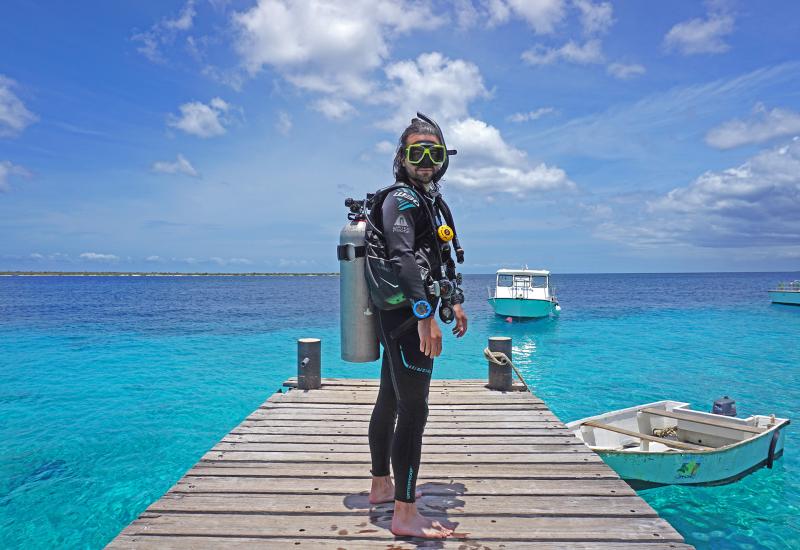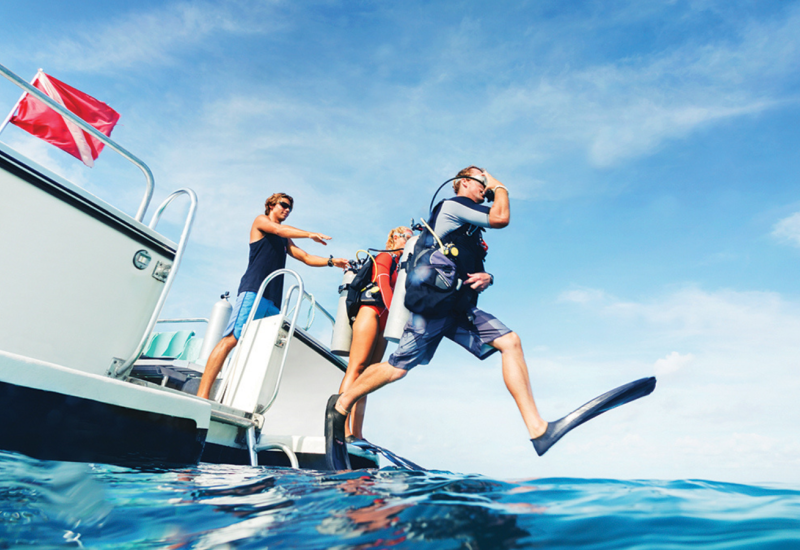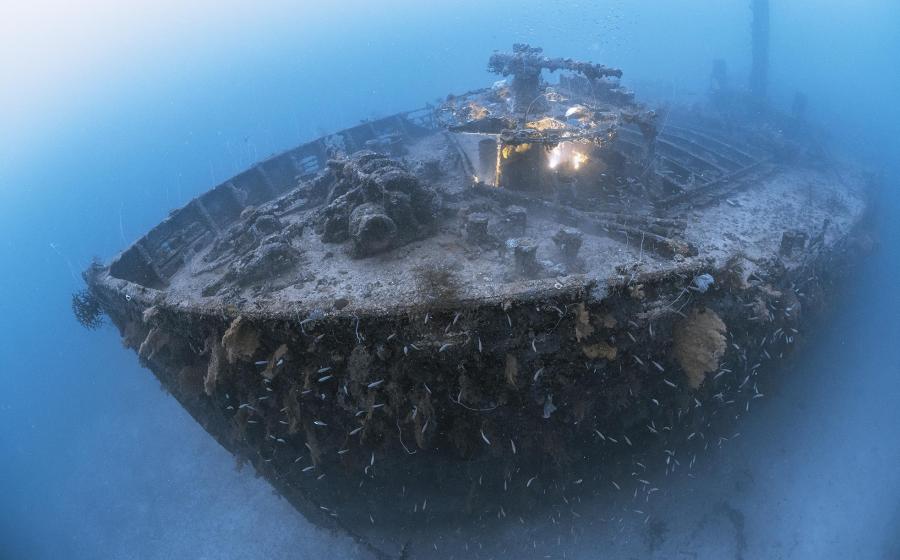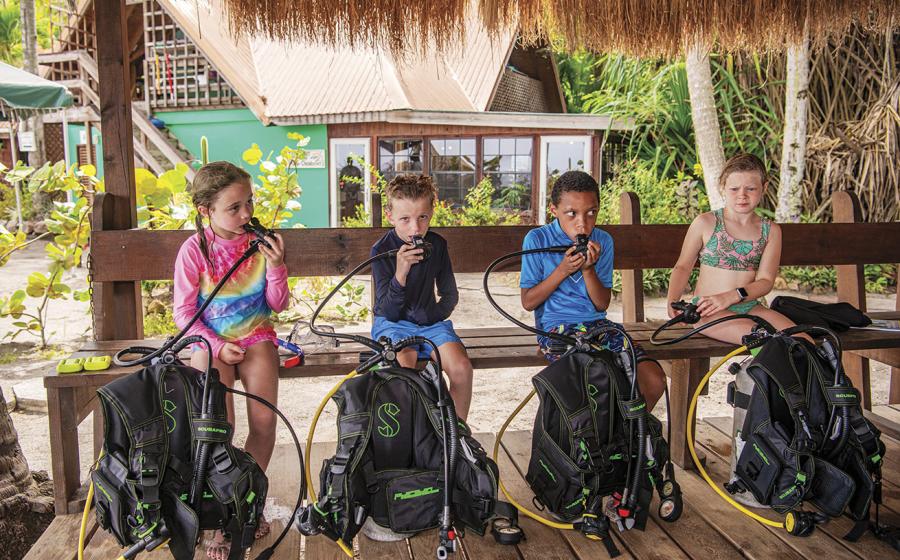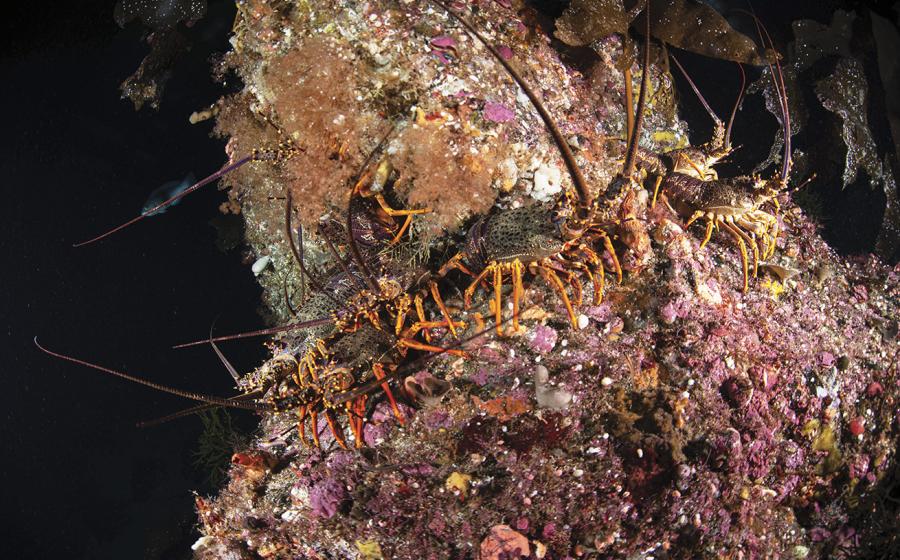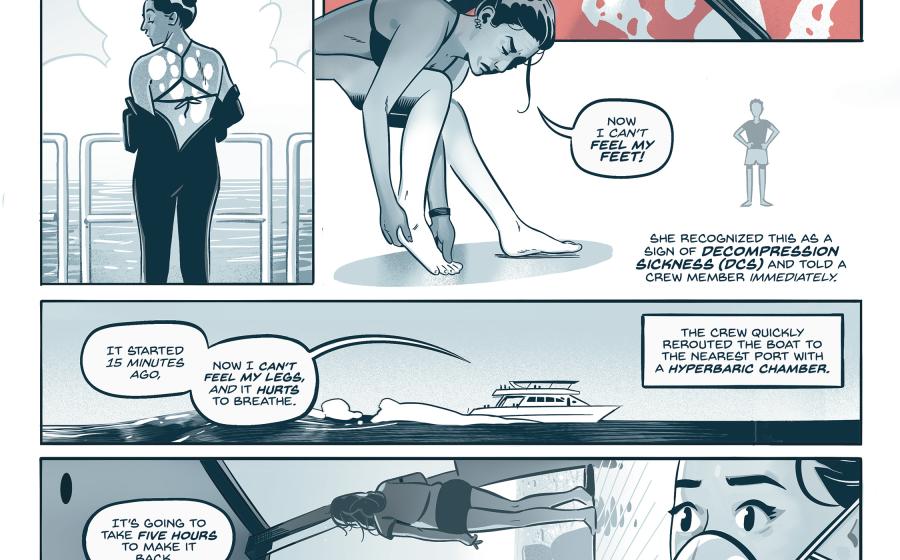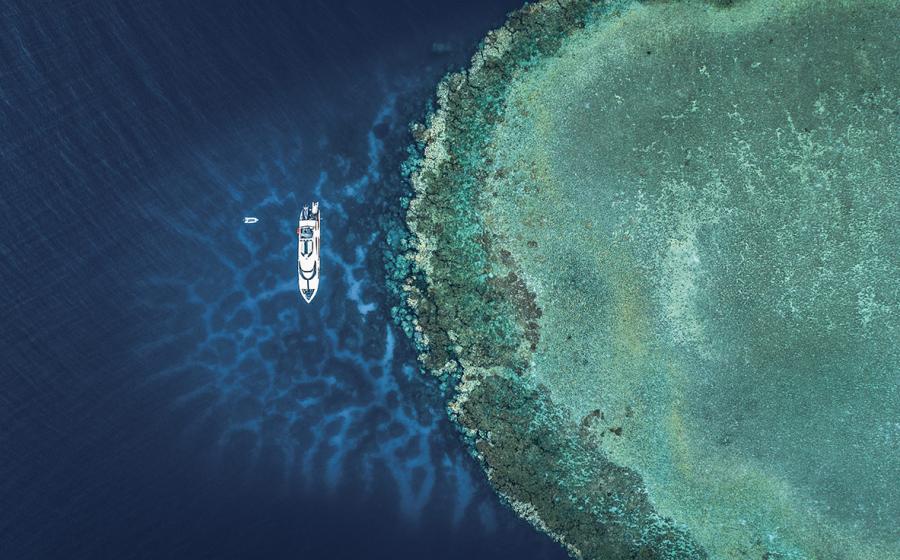10 Myths About Scuba Diving Debunked
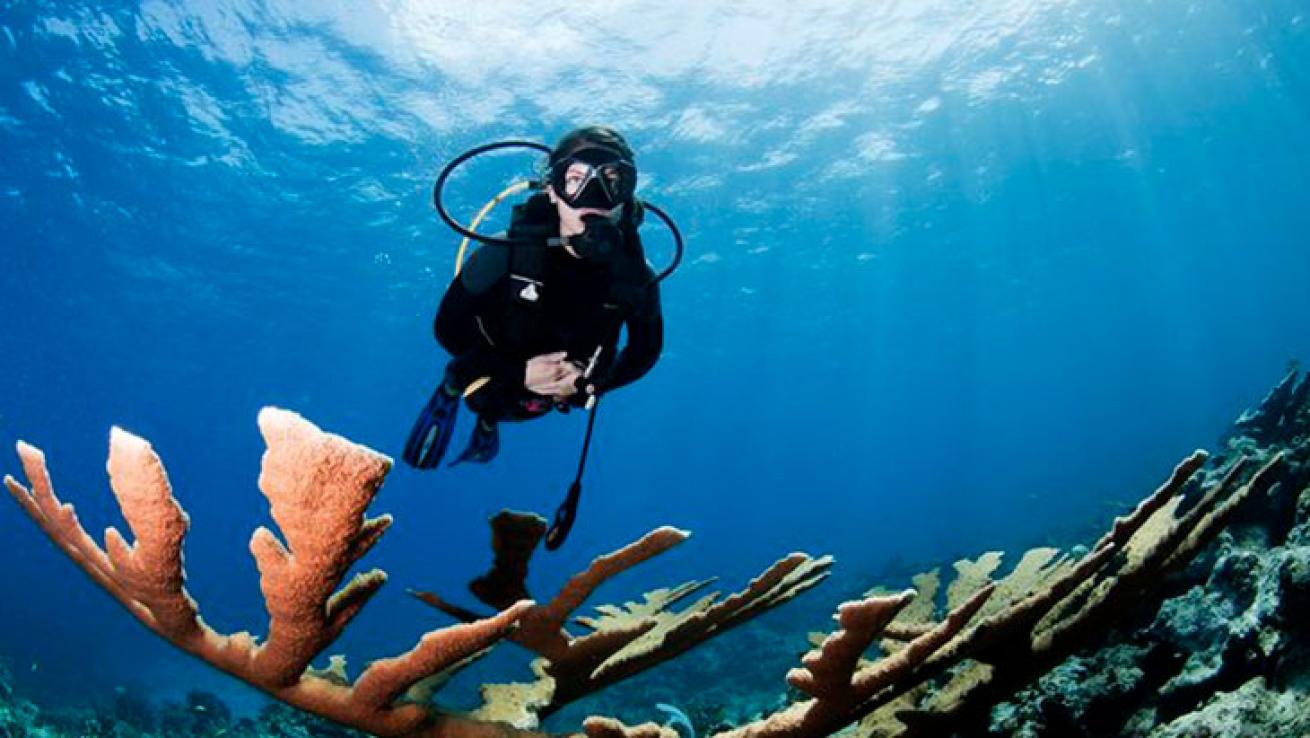
iStockYou don't have to be a competitive swimmer to take up scuba diving.
Intrigued by scuba diving and underwater exploration but have heard a few things that have scared you away? We’d like to bust some common myths about the sport!
Myth: You have to be an Olympic swimmer to become a diver
Fact: Think about it: Can only Tour de France cyclists ride bikes or PGA Tour golfers swing a club?
While we do recommend that you have a decent fitness level and that you’re comfortable in the water, you don’t have to be Michael Phelps to learn to dive. If you’re still not sure you have what it takes, try an Intro to Dive or Try Scuba course. The coursework is easier and you’ll be accompanied by an instructor the entire time in shallow water. You can always graduate to a full-fledged open-water course after trying it.
Myth: You need a lot of gear just to learn
Fact: Scuba diving does require gear, but you only need three basic items to start — a mask, snorkel and fins. These need to fit well for you to enjoy your time underwater, so it’s worth buying them before you start the course.
All the other gear is available to rent, usually at a discount rate to students, or is sometimes included in the package price for the course.
Once you get certified, you can begin buying your own gear, as your budget allows. Until then, rent your gear. Rental gear is high-quality and well maintained — plus renting gives you the chance to see what brands you prefer.
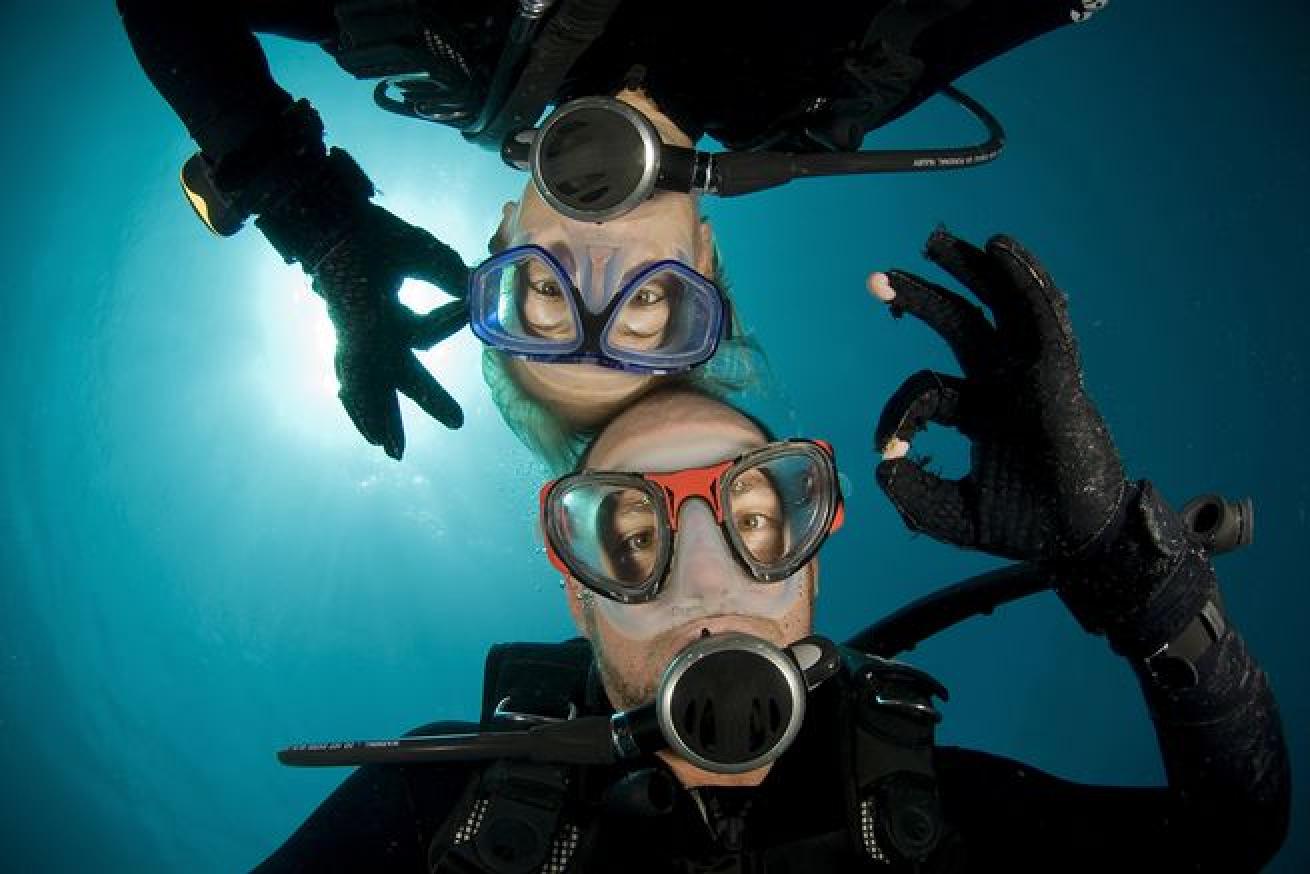
iStockScuba diving is a great activity to pick up with your family or friends.
Myth: Scuba diving isn’t exciting (or it’s too exciting)
Fact: You get to determine the level of excitement in every dive. You can spend a lifetime of diving in calm water, gliding over beautiful coral reefs and looking at pretty tropical fish — those kind of peaceful experiences are amazing and the norm. But if you crave action and adventure, scuba diving can deliver that, too. Try diving with sharks in the Galapagos, exploring the passageways of a flooded cave, or entering a sunken World War II battleship. You’ll find a host of advanced training opportunities to suit the kind of diving you want, including cave, wreck, and yes, even heli-diving.
Myth: Diving is only for people who live near the ocean
Fact: No matter where you live, chances are there’s a dive shop and a popular dive site somewhere nearby. In many cases, a local lake, spring or quarry is where people learn to dive — and it’s often where divers continue to dive, in addition to taking tropical dive vacations. Scuba diving is not just a sport, it’s a very social activity. So even if your local swimming hole isn’t the Caribbean or Great Barrier Reef, an outdoor grill, a cooler, a couple of tanks of air and a few dive buddies can make for a day of fun. Find your local dive shop here.
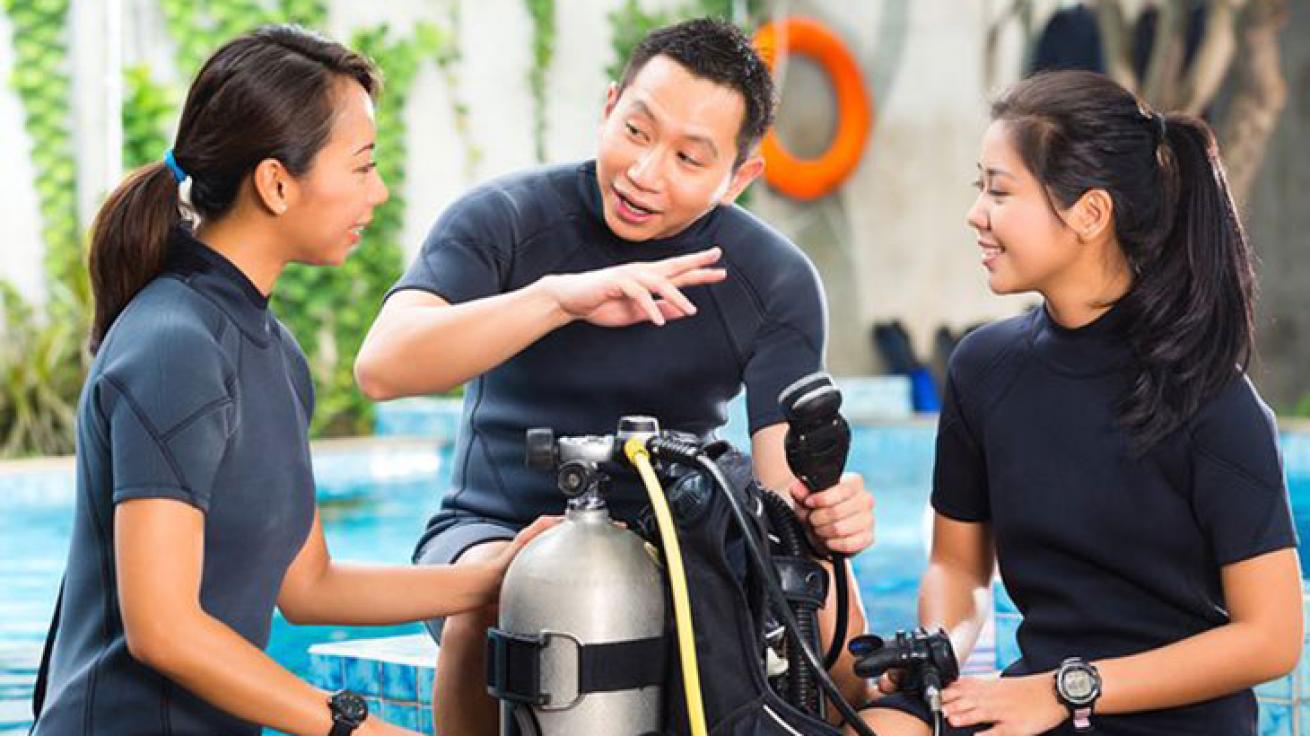
ShutterstockThose who love the water and have a sense of adventure will enjoy scuba diving.
Myth: Diving is a macho sport
Fact: Well, if by macho you mean male-dominated, we admit that this was true when Sea Hunt was still on TV (1958-1961). But fast-forward to this century, and ask Jessica Alba (Into the Blue), Kate Hudson (Fool’s Gold) and Nina Dobrev (Vampire Diaries) what they love about being underwater. Or ask the countless female instructors, divemasters, boat captains and resort owners who work as scuba divers every day. Today, there isn’t anything a girl or woman can’t do in the sport.
Myth: Snorkeling is just as good as scuba diving
Fact: Snorkeling in the ocean and looking down on the reef from above is sort of like looking at fish through the glass of the tanks at an aquarium. It’s fun, but it’s just not the same as being on the reef and seeing all of its wonderful, surprising marine life.
Myth: There are sharks in the ocean and they attack divers
Fact: We saw Jaws and Open Water too. But as shark conservationists, we think this message is important: Sharks attacking people are the stuff of Hollywood summer blockbusters and not based on reality. Most times, sharks don’t even want to be anywhere near divers. In fact, it used to be that divers could go their whole lives without ever seeing these beautiful fish. Today, carefully managed shark-encounter dives are possible, and for some, it is a good way to see these amazing creatures up close.
Still not convinced? Check the statistics — you’re more likely to be killed by a falling soft-drink vending machine than a shark.
Myth: Diving will make my ears hurt
Fact: This one is true, but only if you don’t “clear your ears.” Equalizing the pressure in your ears as you descend is one of the first things you’ll learn how to do when you begin your pool lessons. It’s called the Valsalva maneuver and it’s simple: Pinch your nose and blow gently against your nostrils until you feel relief. With patience, nearly everyone can learn to equalize.
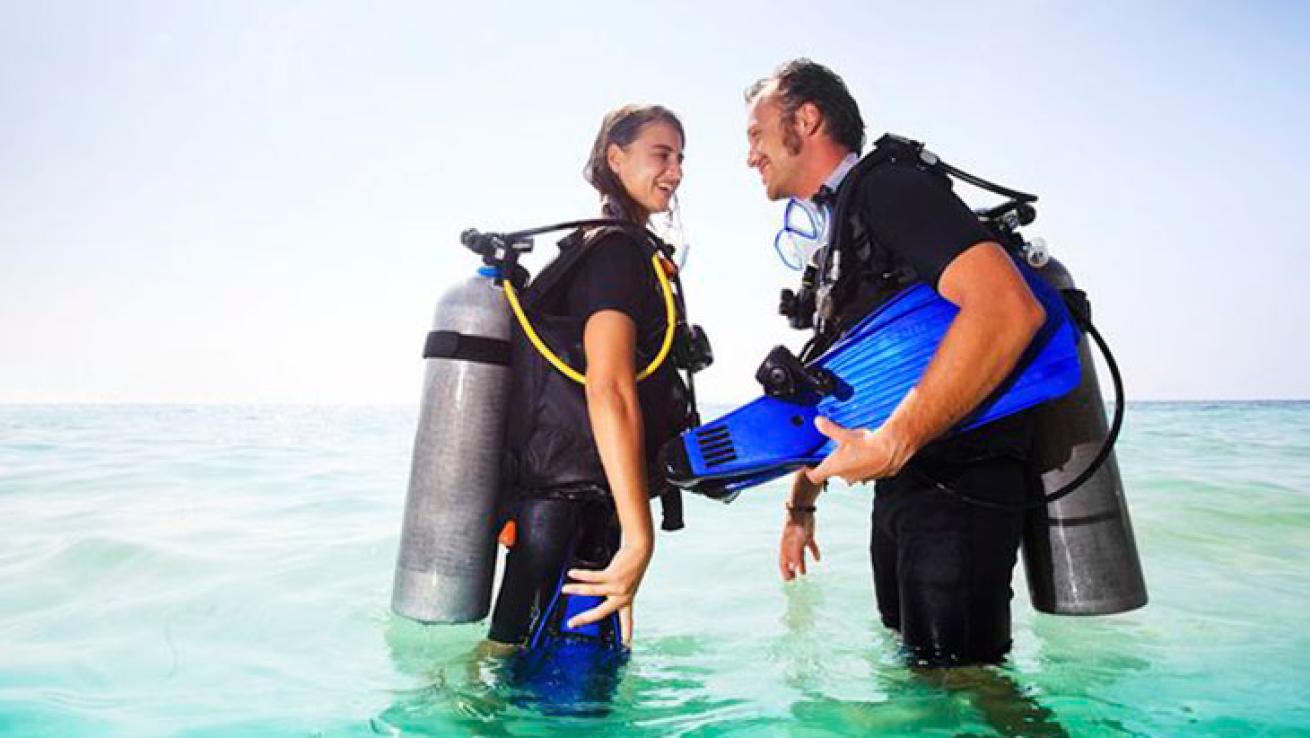
iStockThere are dive sites around the globe, from the Pacific Ocean to a local lake or quarry.
Myth: Certification is way too expensive
Fact: Depending on what’s included, the average certification class runs between $350 and $500. Compare the cost of scuba lessons to almost anything and you’ll see it compares favorably to greens fees, ski-lift tickets, a gym membership or other activities you love doing. Bonus: Like skiing, scuba diving is something the whole family can do together — and that’s priceless.
Myth: I can’t dive. I have (insert name of medical condition here)
Fact: It is true that some conditions, such as seizure disorders, will keep you out of the water. If you’re worried about diving with your particular medical condition, consult the dive medicine experts at Divers Alert Network (DAN). They can help you better understand the physical demands of diving and how it relates to your health. Call their non-emergency questions line at (919) 684-2948.



